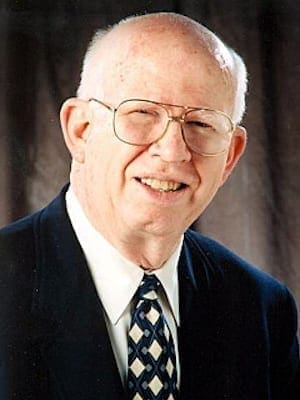Susan Sparks reflects on humor that is joyful and therapeutic in her book, “Preaching Punchlines.”
She is not speaking of humor that is scornful, rude, hateful or judgmental, but humor that lifts us up and honors. She quickly banishes any thoughts that she is advocating delivering sermons that are theologically light.
Sparks, who is pastor of Madison Avenue Baptist Church in New York City, knew that her calling was to be a pastor at age 6.
Yet, her dreams were ridiculed and squelched by religious leaders in her native Southern Baptist upbringing, and so she delayed that dream until mid-career after becoming a successful attorney.
She delights in being a pastor, and this book stresses the hard work that delivering a sermon, speech or comedy routine requires. She is part of a standup comedy troupe that includes a rabbi and an imam.
The heart of the book is the fifth chapter, in which she demonstrates the humor of Jesus in example after example.
Sparks is enthusiastic about how Jesus uses ordinary circumstances to connect with his audience.
He uses every technique available: exaggeration, humor, voice, irony, timing, silence, parables and repetition to capture his listener’s attention.
Follow Jesus’ example, she urges. Use every means possible including humor. This is important because the audience will remember only 10% of what you say.
Providing step-by-step instructions on sermon preparation, she emphasizes always keeping your congregation in mind. What are members of your congregation interested in? What keeps them awake at night? What’s going on around you?
Observe people and listen to them, she advises. Always keep a notebook or recording device with you. Make a note about your observations. Develop a file system that will let you find illustrations that you have experienced, observed or read about. Talk about the hard stuff.
She stresses that congregations need more than they can Google. They need to be given real food by someone they trust.
“A sermon is bigger than us,” she writes. “In its purest form, a sermon should be a message inspired from a higher power given through you to a congregation. God is the power source. If we don’t feel the power, it’s not God.”
Learn to write like a comedian, Sparks says. Build your scenario. The punch line comes last. Wait a moment to let it sink in before you start talking again.
Boil your sermon down to your core message. Put that at the top of your page. Read your sermon out loud at least twice. This will help you weed out unnecessary words or extraneous material.
Narrow your sermon to what is direct and necessary for your one-line summary. Reserve the rest for another time.
Finally, she follows and recommends the practice of praying your sermon out loud.
One commandment Sparks gives is the one many ministers ignore, but its observance is essential: “Thou shalt not be exhausted by the Sabbath.” Rest and sleep are essential.
Sparks believes that being given an opportunity to preach before a community of faith is one of the highest honors one can receive. If one is to perform at her or his best, time apart, rest and reflection are mandatory.
So, she emphasizes that ministers must take a day off. Get away. At least stay away from the church once in a while. She and her husband take motorcycle trips.
Always remember why you are doing what you are doing, she says. Tap into the source. Always keep a copy of your sermons. Review them, taking note of common themes. What excites you? What do you preach about most often?
Her final commandment is my favorite, “Thou shalt have joyous communication.” This is true for comedians, motivational speakers and preachers. “No matter how we feel, we must radiate joyous communication into the rafters and far corners of the sanctuary.”
As I travel around and hear sermons from preachers in various denominations, this element most often is missing. Where is the joy of living the Christian life?
I already know my failures. If the joy is lacking in your speeches or sermons, Spark’s book will lift your spirits and help you rekindle your zest for preaching.
She reminds us that we are enough, and that God always has our back.
“Preaching Punchlines” contains ample references and numerous QR codes that allow you to scan even more. This book is pure gold for anyone who wishes to improve her or his sermons.
A member of First Baptist Church of Charleston, South Carolina, he was the author of “Our Father: Discovering Family.” Mitch’s writings can be found at MitchCarnell.com.


